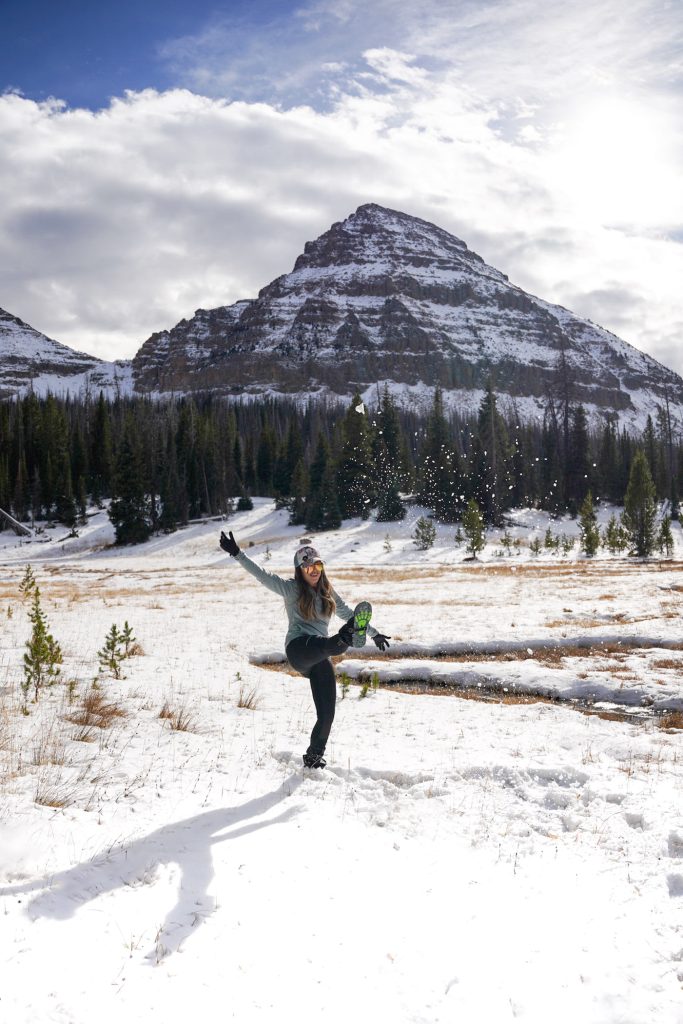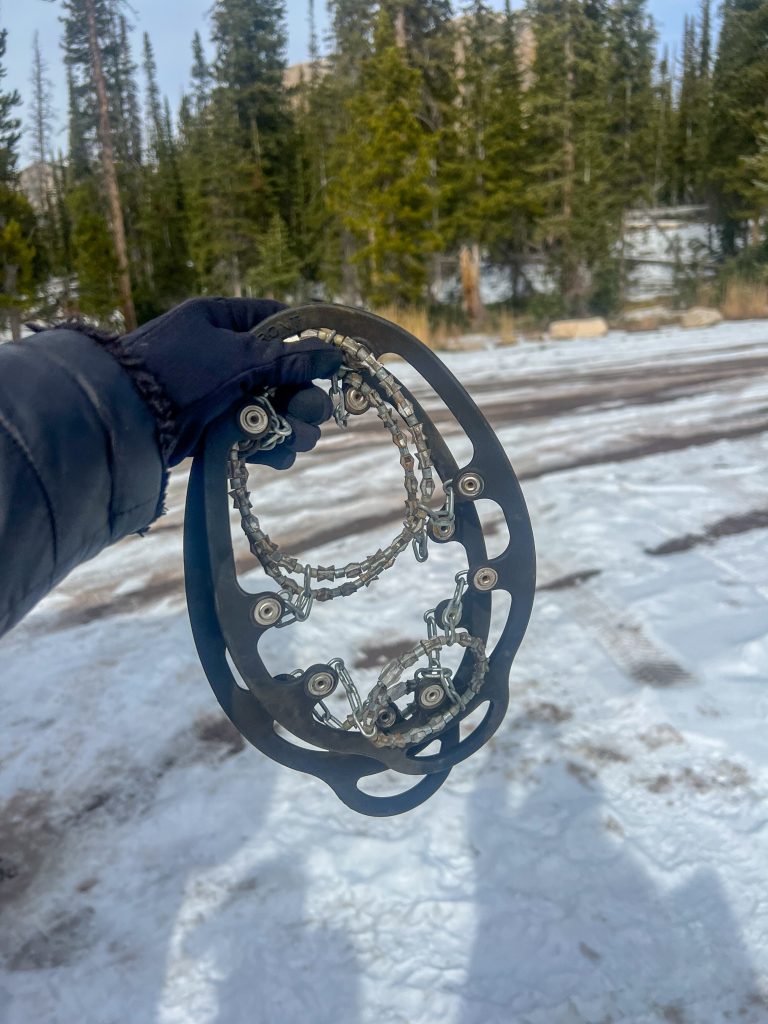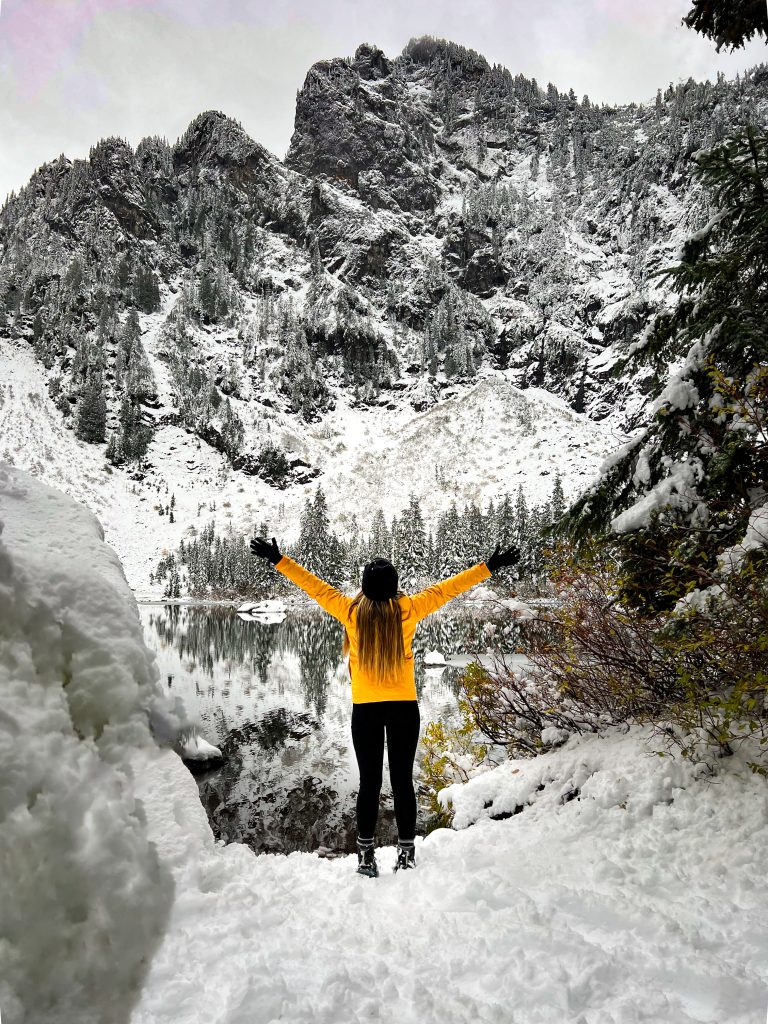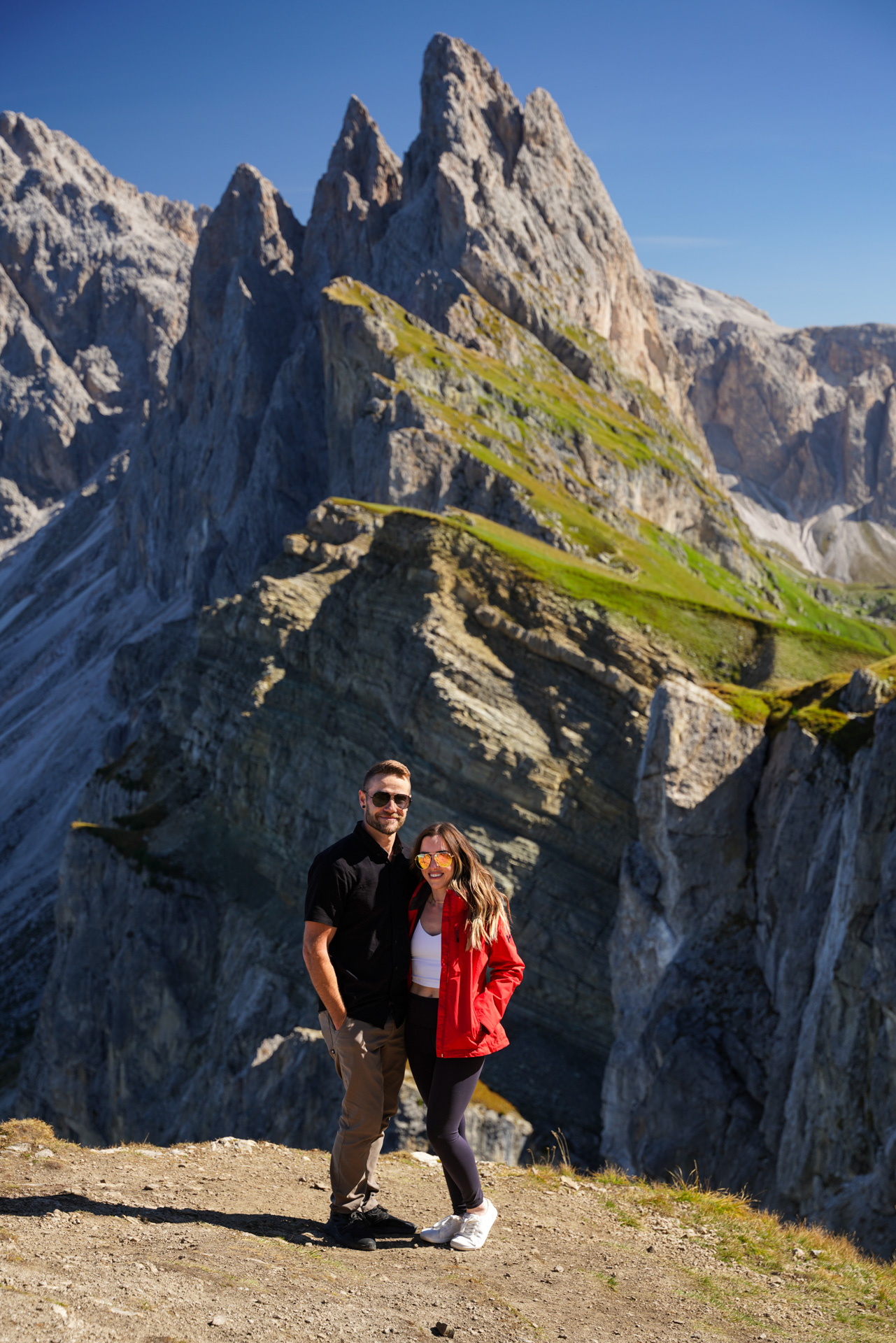Table of Contents
- Introduction to Winter Hiking
- The Importance of Layering
- Footwear Essentials
- Head, Hand, and Foot Protection
- Essential Winter Hiking Gear
- Advanced Gear for Extreme Conditions
- Tips for Packing and Using Your Gear
- Final Thoughts on Winter Hiking Preparedness
- Join the Winter Trek Convo
Introduction to Winter Hiking
Winter transforms hiking trails into a quiet, frosty paradise, offering a peaceful solitude you just can’t find in the warmer months. But the beauty of winter comes with its own set of challenges. Proper gear is not just a recommendation; it’s a necessity. Here’s the lowdown on the must-have gear for your winter hiking adventures.
The Importance of Layering
Tops

Base Layer
A quality base layer is your first defense against the cold. Example: The Smartwool Merino 250 Base Layer offers excellent moisture management and warmth, keeping you warm and comfortable in winter conditions.
Insulating Layer
Your insulating layer is crucial for retaining body heat. Example: The North Face ThermoBall Eco Jacket, with its synthetic fill, offers warmth even when wet and is lightweight enough for layering.
Outer Layer
A robust outer layer shields you from wind and snow. Example: The North Face Apex Flex GTX 3.0 Jacket remains my reliable barrier against harsh winter elements, providing both waterproofing and breathability.
Pants
Base Layer (Thermal Underwear)
Opt for a pair of snug-fitting thermal underwear as your first layer. Example: Smartwool’s Merino 250 Base Layer Bottoms are perfect for moisture management and warmth.
Mid Layer (Insulating Layer)
Add a fleece or soft-shell pant for extra insulation on colder days. Example: Patagonia R1 Pants offer lightweight yet effective insulation without hindering movement.
Outer Layer (Shell Layer)
Protect yourself from the elements with waterproof and windproof shell pants. Arc’teryx Beta AR Pants provide unparalleled protection with GORE-TEX Pro material, ensuring you stay dry and comfortable.

Footwear: Boots and Traction Aids
Winter Hiking Boots
The Salomon X Ultra Winter CS WP 2 boots are my go-to for their superior warmth, waterproofing, and ankle support, making them ideal for navigating snowy trails.
Don’t Forget Gaiters
For deep snow conditions, adding a pair of waterproof gaiters, like the outdoor research crocodile gators can prevent snow from entering your boots, keeping your feet dry and warm.
Traction Devices
On icy paths, a reliable traction aid is non-negotiable. Yaktrax Pro Traction Cleats easily attach to your boots, offering stability on ice and packed snow without the weight of traditional crampons.
Head, Hand, and Foot Protection
Invest in a warm hat, gloves, and socks. Examples: A Smartwool Merino 250 Beanie, Outdoor Research Alti Mitts, and Darn Tough Hiker Micro Crew Cushion Socks form the core of my cold-weather protection, ensuring my extremities stay warm even in sub-zero temperatures.
Essential Winter Hiking Gear
Backpack
A good backpack should accommodate all your gear comfortably. Osprey Daylite Commuter BackpackPack is my got-to for any day hike.
Backpack Waterproof Cover
To winterize any backpack, consider adding a waterproof cover. Example: The Sea to Summit Ultra-Sil Rain Cover is a lightweight, durable solution to keep your gear dry under any conditions.
Hydration Systems
Example: The Hydro Flask Wide Mouth bottle, with its insulation properties, keeps my water from freezing, ensuring I stay hydrated without the hassle of thawing ice.
Safety and Survival Gear
Bringing along an emergency shelter and a winterized first aid kit can be life-saving. Examples: The SOL Emergency Bivvy offers an immediate refuge from the cold, while HotHands hand warmers in your first aid kit provide quick warmth in critical situations.
Advanced Gear for Extreme Conditions

Avalanche Safety Equipment
Example: Equipping yourself with the Black Diamond Guide BT Beacon and an Ortovox Alu 240 Probe is essential for safety in avalanche-prone areas, offering peace of mind along with critical rescue capabilities.
Portable Stoves
Our Pick: Jetboil Flash Camping and Backpacking Stove Cooking System is invaluable for melting snow and preparing hot meals, making it a must-have for any winter expedition where maintaining core temperature and nutrition is key.
Tips for Packing and Using Your Gear
Organization and maintenance of your gear are as crucial as the gear itself. Waterproof sacks, accessible emergency compartments, and post-hike gear drying will keep you prepared and safe on every winter outing.
Final Thoughts
Winter hiking brings the raw beauty of nature into stark relief, but it demands respect. With the right gear, including dependable layers, footwear, and safety equipment, you’re set to explore the winter wonderland safely and enjoyably. Remember, adventure awaits, but preparation is key.
Join the Winter Trek Convo!
What’s in your winter hiking pack? Share your favorite gear and any cold-weather hiking tips you’ve picked up along the way. Let’s gear up and embrace the chill of winter adventures together!


0 Comments